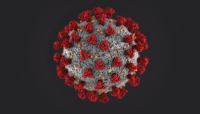
24 February 2021 at 7:00 PM GST
CAGS WEBINAR SERIES
Genomics of Infectious Diseases




Youssef Idaghdour
Genomic interrogation of host immune response to infectious diseases
The genotype-phenotype relationship is highly complex for most traits including host immune response to infection. Most of the complexity lies beneath higher-level phenotypes, moving from the architecture of the genome itself to protein function and transitioning through the complex modes of epigenetic, gene expression, and post-transcriptional regulation. Major advances in genomics including genome and RNA sequencing technologies have provided the opportunity to interrogate at high resolution host and pathogen at multiple levels. These technologies have been instrumental in the fight against infectious diseases. In this talk, I will present recent genomic work on malaria that uncovered a strategy used by Plasmodium to evade host immune response with implications on the development of effective vaccines for malaria and other infectious diseases including COVID-19.
Ahmad Abou Tayoun
Using genomic approaches to understand the clinical, molecular and epidemiology characteristics of COVID-19
In this talk, we will briefly go over the genetics of COVID-19 and demonstrate how mutations in the SARS-CoV-2 virus can be used for spatiotemporal tracking of the disease spread. Speaker will present genomic epidemiology data from the UAE to illustrate the evolution of COVID-19 in the country. In addition, a genotype-phenotype correlation analysis will be presented to determine if any viral mutations are associated with disease infectious rate and/or disease severity in the UAE. Finally we will discuss host genetics factors which might shed the light on the molecular responses to SARS-CoV-2 infection in patients with mild, moderate, and severe outcomes.
Professor of Viral Pathology and previous Chair of the Department of Medical Microbiology & Immunology,
College of Medicine and Health Sciences, UAE University
Gulfaraz Khan is Professor of Viral Pathology and previous Chair of the Department of Medical Microbiology & Immunology, College of Medicine and Health Sciences, UAE University. Dr Khan did his undergraduate and postgraduate studies in London (St Bartholomew’s Hospital Medical College, and the London School of Hygiene and Tropical Medicine). He did his postdoctoral training in the Department of Pathology at Tufts University School of Medicine, Boston, USA, and at the Leukemia Research Fund Virus Centre, University of Glasgow, Scotland. He subsequently held faculty positions in universities in UK before moving to his current post in UAE.
Dr Khan’s primary research interests are in viral pathology and infectious diseases. His secondary interests are in emerging viral infections and public health. He has more than 95 publications in high impact journals, and 7 book chapters. His publications have been cited >25,000 (as of Dec. 2020).
Dr Khan is actively involved in teaching and training medical students and postgraduate research students. He has received a number of awards, including the College and University Awards for Excellence in Teaching (2013 & 2017) and Scholarship (2017). He was a nominee for the UAE Prime Minister’s Medal for Scientific Excellence (2017), and is a member of the UAE Mohammad bin Rashid Academy of Scientists. He is also a member of several national and international committees, including, the National Immunization Technical Advisory Group, Sheikh Hamdan Awards Committee, National COVID-19 Research Committee, and more recently, the Regional Advisory Committee for the US NIH-National Institute of Allergy and Infectious Diseases. He serves on the editorial board of several international journals.
Director of the Genetics Laboratory at Al Jalila Children’s
Dr. Ahmad is Director of the Genetics Laboratory at Al Jalila Children’s. He completed his doctoral studies (PhD) at Dartmouth College in the USA followed by a fellowship in molecular diagnostics at Dartmouth Medical School.
In 2013, he joined Harvard Medical School where he completed his clinical molecular genetics fellowship and, in 2015, became board-certified by the American Board of Medical Genetics and Genomics (ABMGG). Dr. Abou Tayoun is a fellow of the American College of Medical Genetics and Genomics.
Prior to joining Al Jalila Children’s, he was a director in the Division of Genomic Diagnostics at the Children’s Hospital of Philadelphia, and also an assistant professor of Pathology and Laboratory Medicine at the University of Pennsylvania Perelman School of Medicine. To support clinicians in various specialties at CHOP, Dr. Ahmad developed genomic sequencing-based diagnostic tests for a range of pediatric disorders. He also developed and published several tools and assays involving next generation sequencing and variant interpretation. Dr. Abou Tayoun is a co-chair of the Clinical Genome Resource (ClinGen) Hearing Loss Expert Group, and is a member of the ClinGen Sequence Variant Interpretation group. In both capacities, Dr. Abou Tayoun is working with international experts to establish guidelines and recommendations for sequence variant interpretation in general, and in the hearing loss disease area specifically.
Assistant Professor of Biology at NYU Abu Dhabi
Dr. Youssef Idaghdour is Assistant Professor of Biology at the NYU Abu Dhabi. Youssef grew up in southern Morocco where he later graduated with BSc in Biology and spent several years working on endangered avian species. After completing his M.Sc. training in Molecular Genetics at the University of Leicester in the UK and Ph.D. training in Genetics at North Carolina State University under a Fulbright Scholarship, he received a Banting Postdoctoral Fellowship and became part of a large program in medical and population genomics at Sainte-Justine Research Center in Montreal prior to joining New York University Abu Dhabi.
The overarching goal of Youssef Idaghdour’s group is to understand how genomes and environment interact at various levels of biological variation, moving from the architecture of the genome itself to protein function and transitioning through the complex modes of epigenetic and gene expression regulation. Youssef Idaghdour is particularly interested in studying the role genetic and environmental factors play in shaping health-related phenotypes and how interactions between these effects trigger disease and modulate its outcome. He does most of his experimental research on mammalian systems and he focuses on metabolic traits and immune response to cancer and infection. To achieve these goals, his lab generates high-dimensional genomic datasets from single-cells, tissues, and cells, and use bioinformatics and statistical genetic approaches to analyze the data.
Youssef is also interested in the area of ecological genomics and he's actively involved in developing genetic tools to facilitate population genetic analysis of endangered marine and wildlife species including Houbara bustards and falcons.